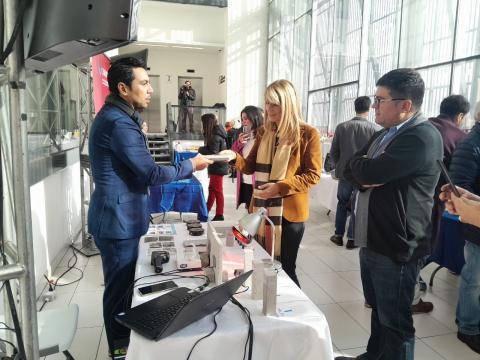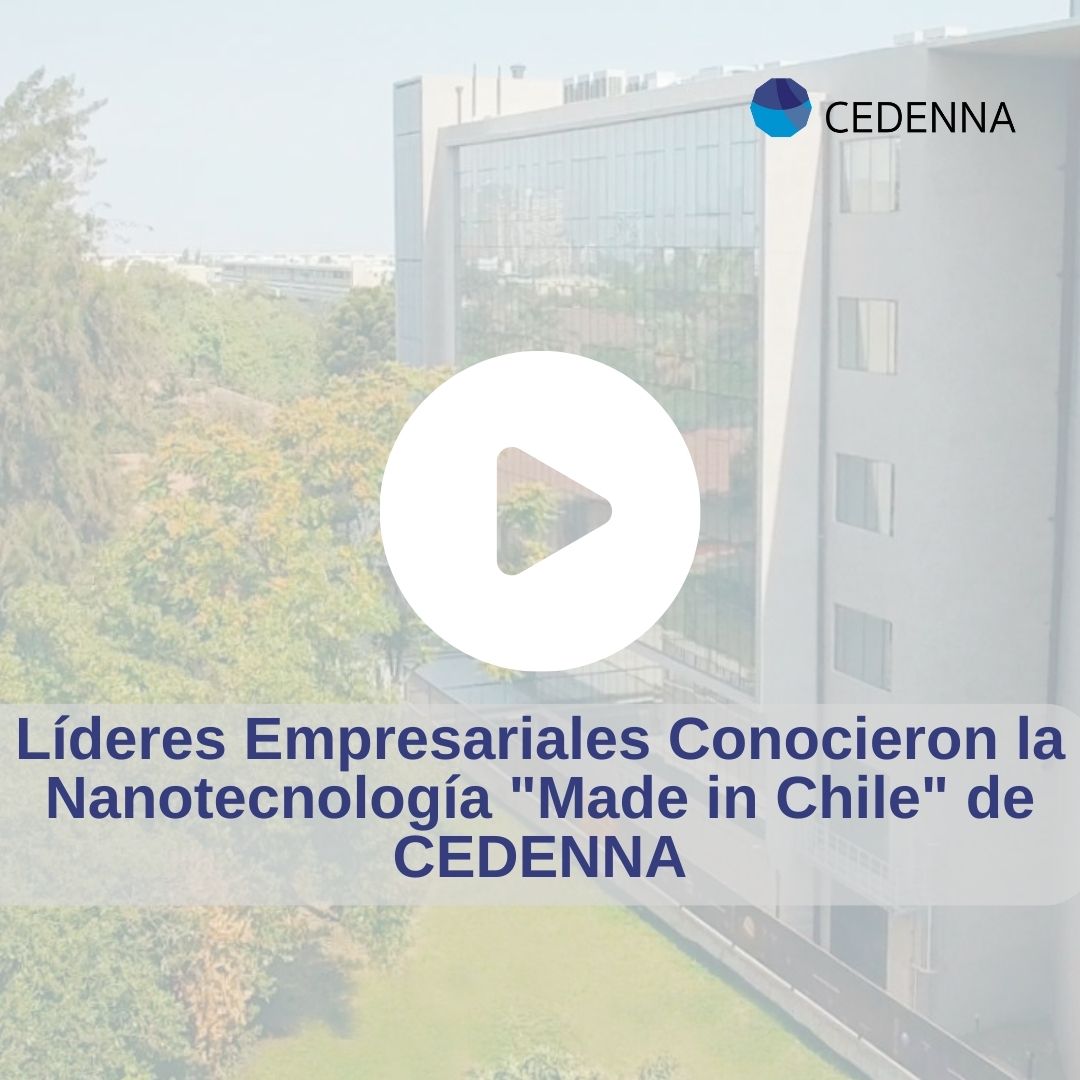
President of the Senate's Future Challenges Commission called for the formation of a single platform in which scientists, businessmen and the State can advance in unison.
With the assistance of business, political and academic authorities, the 2023 version of the Nanotechnology Fair was developed, organized annually by the Center for Nanoscience and Nanotechnology (CEDENNA) formed by a consortium of 14 Chilean universities. Executives from leading companies such as Copec, Enel, SQM, ChileCarne, Grupo Sutil, Codelco, Nestlé, ChileAlimentos, Deysa Care, Coexpan and Agrosuper, among others, met at the scientific center to learn first-hand about all the lines of research in the Center and its developments, talking with the researchers and engineers who lead these projects.
During the conference, business leaders from different sectors were able to learn about the development of sensors to detect the presence of pesticides in fruits and vegetables; sensors for the detection of crushables in mining and machinery wear; the use of nanotechnology to treat cancer; structural lightweight concrete with nanotechnology; native species protection systems; containers with properties to extend the useful life of food, maintaining its quality and high-end batteries, among others, as well as CEDENNA's contributions to the development of nanosafety with OECD standards. The day began with the presentation of CEDENNA's work through its director, Dr. Dora Altbir, who detailed the impact of nanotechnology in different fields, including medicine, energy, environment, food, agriculture, electronics and data storage. . He pointed out that CEDENNA was born 13 years ago, currently the most important nanoscience and nanotechnology center in the country and the only one in Latin America with a multidisciplinary approach. Since then, the institution has advanced to a stage of technology transfer through its developments and services, part of which were presented to representatives of various companies in the scientific exhibition mounted on the esplanade of the Eduardo Morales Santos Research Centers Building, in the USACH.
Create a common platform
The president of the Future Challenges Commission of the Upper House, Senator Ximena Rincón, also participated in the conference, who highlighted the relevance of these meetings “and the potential we have in this country on this issue. And if we do not advance further, it is because we have not been able to transmit this information about what the scientific-technological world, innovative companies and even the State are doing to the rest of the country”. He regretted that Chilean resilience in the face of catastrophes like the ones that agriculture in the central zone is now experiencing does not also advance towards the adoption of nanotechnological solutions such as those he learned about during this visit and compromised the efforts of the commission he chairs to draw that bridge. “We have not yet managed to develop a permanent public-private and scientific-academic collaboration on a solid, structured basis. And I think that's the big challenge: build trust, build collaboration that has a known platform. And obviously that is the challenge that we must face as a country. Scientists and politicians have to sit down and talk quickly. Other countries are passing through us and we are wasting opportunities”, he concluded. SQM's Innovation and Development Manager, Osvaldo Yáñez, told the attendees about the company's experience in the work they have done with CEDENNA. “Some time ago we made the decision, as a company, to move forward in the value chain. We are very good at extracting and copying external experiences, but to give a higher added value we need to add the knowledge and skills that our scientists and our universities have. If we could add the skills that different centers like this have, it would be even better and we would form a much more competent whole. But we are, as a country, asleep. We have a good challenge ahead of us”, he concluded.
Opiniones en el recorrido
The representative of Nestlé, María Cristina Villamán, summarized the general comment of the attendees: "A meeting like this is wonderful because it allows us to know and understand in detail the science and technology that is being developed in our country and what better than seeing it here live and direct with the people who are doing it”. “It is great news for us that nanotechnology solutions are being explored in universities and, in particular, the applications aimed at mining that we have known here in detail have caught our attention. And the time it took to implement it is quite amazing and how they generate competition from other companies that have already implemented their solutions. I believe that NT has a lot of potential in our mining industry and that is how we are going to incorporate it”, stressed the Innovation Manager of Codelco, Paula Gómez, during her tour of the fair. "We at Copec work permanently with universities, with scientists, because it is a permanent job that allows us to achieve national knowledge with the needs and demands of the company, especially in the field of innovation," said Copec's general manager, Arturo Natho. "Here one realizes that a lot of solutions have been developed that are very applicable to our industry, which is finally interested in producing food that is ultimately healthy for people and nanotechnology is closely related to generating solutions that translate directly into effects beneficial for consumers”, commented Guillermo González, manager of Chilealimentos.

- Log in to post comments







